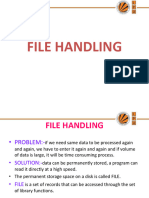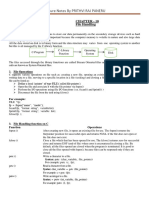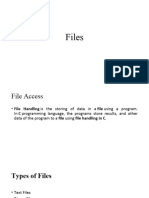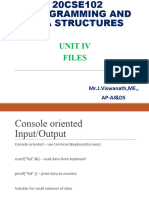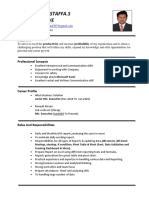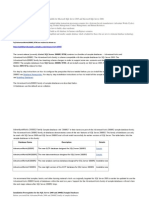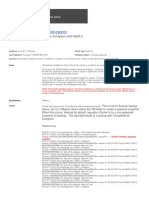0% found this document useful (0 votes)
28 views24 pagesCPNM Lecture 17 File Handling
The document provides an overview of file handling in C, detailing the structure of FILE pointers, modes for opening files, and functions for reading and writing data. It covers character and string I/O, as well as binary file operations using fread and fwrite. Additionally, it includes examples demonstrating file operations such as copying, erasing, and formatted input/output.
Uploaded by
akshaygupta9874Copyright
© © All Rights Reserved
We take content rights seriously. If you suspect this is your content, claim it here.
Available Formats
Download as PDF, TXT or read online on Scribd
0% found this document useful (0 votes)
28 views24 pagesCPNM Lecture 17 File Handling
The document provides an overview of file handling in C, detailing the structure of FILE pointers, modes for opening files, and functions for reading and writing data. It covers character and string I/O, as well as binary file operations using fread and fwrite. Additionally, it includes examples demonstrating file operations such as copying, erasing, and formatted input/output.
Uploaded by
akshaygupta9874Copyright
© © All Rights Reserved
We take content rights seriously. If you suspect this is your content, claim it here.
Available Formats
Download as PDF, TXT or read online on Scribd
/ 24











